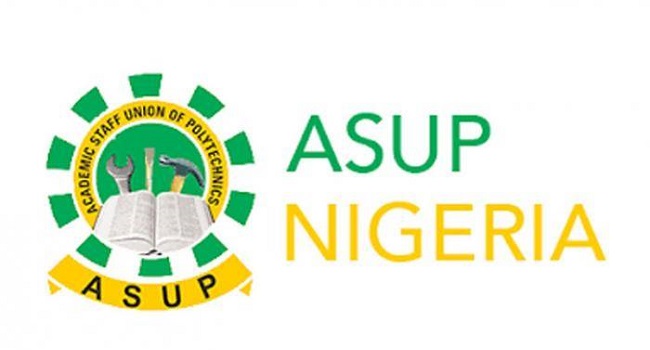News
ASUP shelves planned strike

The Academic Staff Union of Polytechnics (ASUP) has suspended its planned strike.
The Zone B Coordinator of ASUP, Mr. Simji Lumpye, disclosed this in a statement on Tuesday in Jos, Plateau State.
He said the decision to shelve the strike followed a tripartite meeting between the union and the Federal Government.
The ASUP had on July 19 issued a 15-day ultimatum to the federal government on the contentious scheme of service released by the National Board for Technical Education (NBTE).
Lumpye said: “I wish to inform the general public and our esteemed members that the government immediately convened a tripartite meeting between it, NBTE, and our union.
READ ALSO: ASUU threatens fresh strike amid unmet demands
“Far-reaching decisions were reached, which included the suspension of the implementation of the released scheme of service, the convening of the meeting of all stakeholders to further scrutinise the document and make the necessary adjustment and correction.
“That the Executive Secretary of NBTE should issue a circular directing the suspension of the implementation of the scheme of service to all chairmen of Governing Councils, rectors and provosts of schools.
”The union at its emergency National Executive Council meeting on July 2, resolved among other things to put on hold her earlier resolution to embark on an industrial action after the expiration of her ultimatum.”
The ASUP official thanked the Minister of Education, Tahir Mamman, the leadership of the union, and other stakeholders for playing key roles in averting the strike.
Join the conversation
Support Ripples Nigeria, hold up solutions journalism
Balanced, fearless journalism driven by data comes at huge financial costs.
As a media platform, we hold leadership accountable and will not trade the right to press freedom and free speech for a piece of cake.
If you like what we do, and are ready to uphold solutions journalism, kindly donate to the Ripples Nigeria cause.
Your support would help to ensure that citizens and institutions continue to have free access to credible and reliable information for societal development.




























